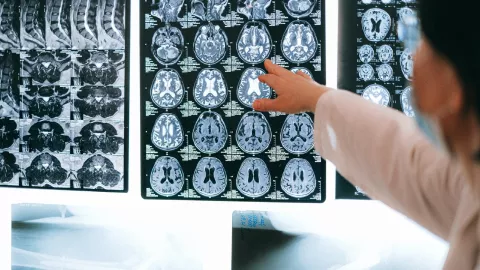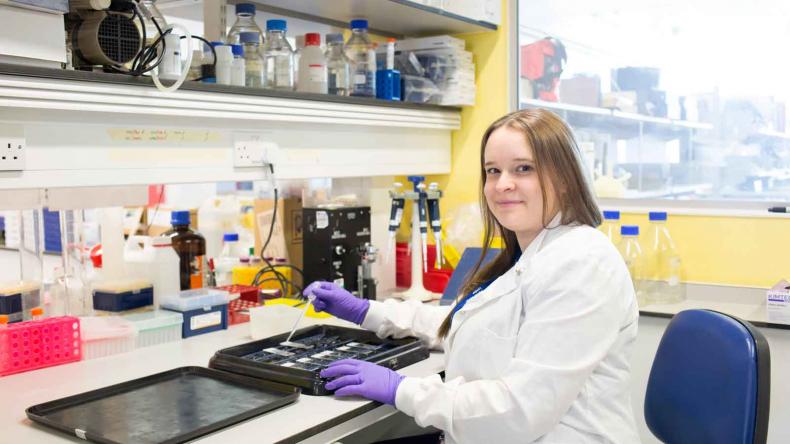
New study finds connection between risk factors for heart health and brain volume in secondary progressive MS
Using data from the MS-STAT2 trial, researchers looked at the connection between heart and blood vessel health and MS.
They focussed on risk factors that we can influence, like smoking or blood pressure. And they found this risk was connected to lower brain volume, a sign for loss of nerve cells, in people with secondary progressive MS.
Our cardiovascular risk (CVR) is how likely we are to experience an event related to the health of our heart and blood vessels. For example, a stroke or a heart attack.
Previous research has shown being more likely to experience these events could have a negative impact on MS. For example, it’s been linked to lower brain volume. This can be a sign that nerves are being damaged. And it's been linked to progression of disability.
Now researchers from University College London (UCL) found more evidence of a link between CVR and both brain volume and memory in secondary progressive MS.
What did the researchers do?
The researchers used data from 218 people with secondary progressive MS. Everyone was taking part in the MS-STAT2 trial, but the researchers only looked at data from before people took their first dose of treatment or placebo (a dummy drug).
The researchers looked at MRI scans to measure brain volume. And they looked at physical disability and things like memory and learning.
The researchers used a score based on modifiable risk factors to measure people’s cardiovascular risk. These are things that can be changed, like blood pressure, BMI and whether you smoke. Then they compared that score with other people of the same age, sex and ethnicity. So they could see whether someone had a higher or lower modifiable risk than other people like them.
What did they find?
The researchers found your likelihood to experience an event related to the health of our heart and blood vessels was linked to:
- Smaller brain volume
- Poorer verbal working memory. This is how well you can temporarily store verbal information. For example, remembering a phone number for long enough to put it in your phone.
They didn’t find a link between CVR and physical disability.
The researchers also looked more closely at each risk factor individually. They found a higher BMI had the strongest relationship to lower brain volume. And cholesterol levels had the strongest relationship to verbal working memory.
The results supports findings from previous studies. And because the researchers used a measure of CVR focused on modifiable risk factors, it gives us additional information about the role of the risk we can influence.
What does this mean for people with MS?
Growing evidence suggests the health of your heart and blood vessels could play an important role in MS outcomes. But we don't know for sure whether higher CVR is the culprit that causes these things. It could be that it’s the other way around. Or that something else causes both.
In this study, the researchers looked at patterns across groups of people. And we know everyone’s MS is unique. So having a higher CVR doesn’t automatically mean you’ll also have lower brain volume or worse memory.
And there are things you can do to improve your heart health. For example, previous research showed quitting smoking can slow MS disability progression.
But changing your lifestyle is a personal choice and can be very challenging. We encourage you to speak to your MS specialist before making any drastic changes.
What’s next?
The researchers only looked at data from one moment in time. We need to collect data at multiple time points to look at progression over time.
The MS-STAT2 trial is ideal for this. Everyone stays part of the trial for at least three years. So MS-STAT2 will help us learn more about progression over time. And how CVR is connected to this.
It’s fantastic to see the trial data is already being used to answer important research questions beyond the main aim of the trial. None of this would be possible without all the amazing people who took part in this trial!




